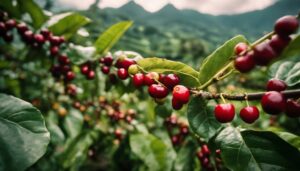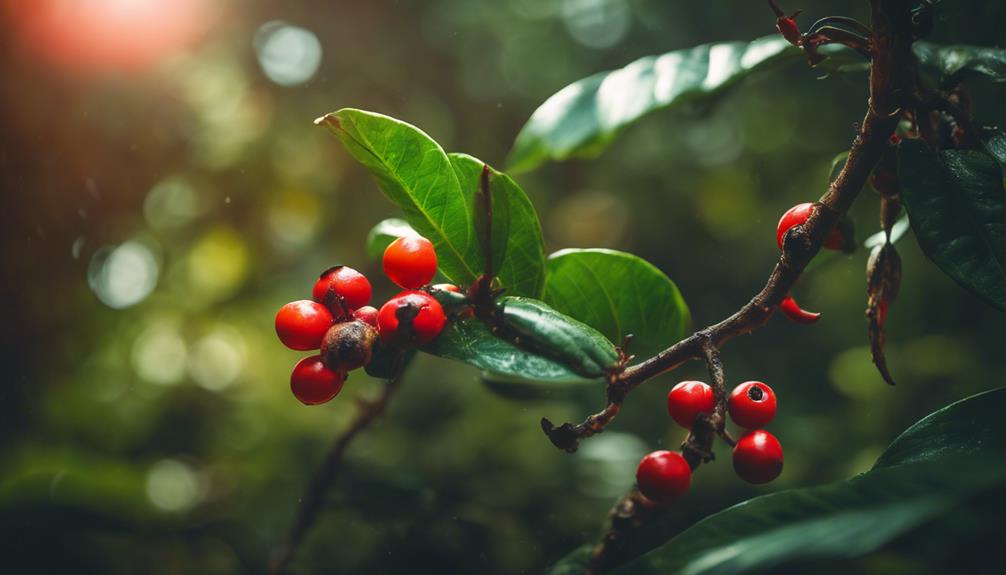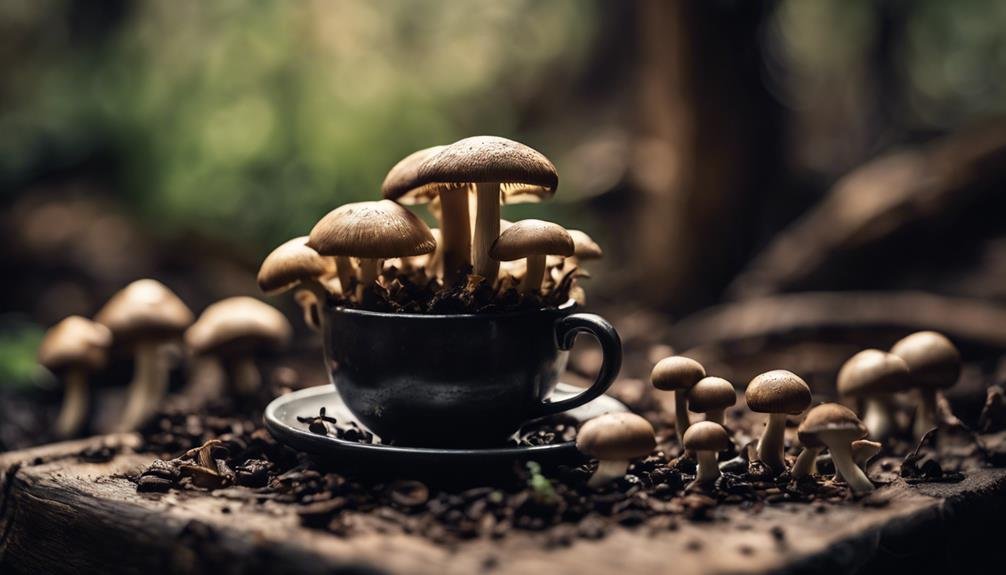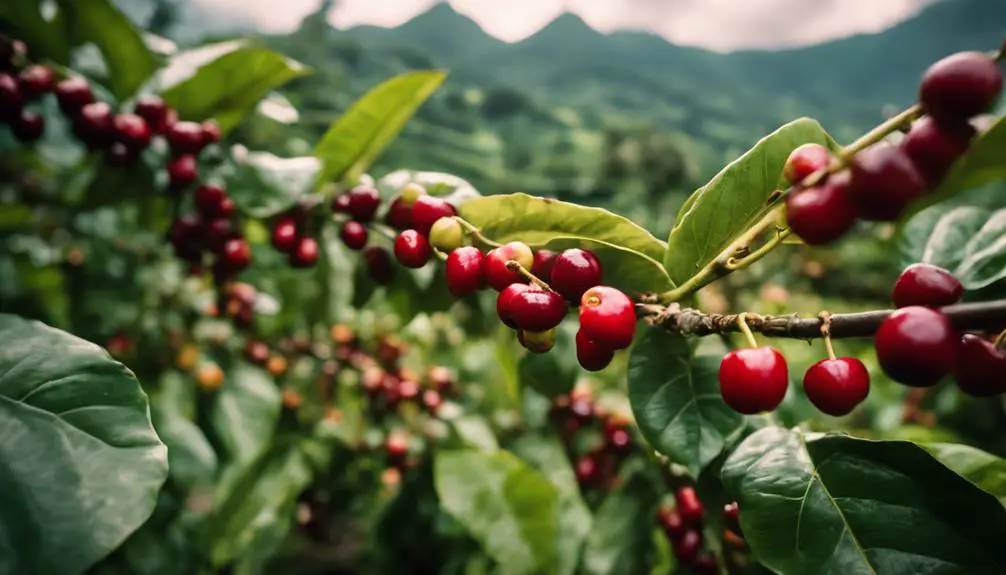Are you looking to purchase wholesale coffee for your business or organization? One of the first questions you may have is: how much does wholesale coffee cost? The answer is not as straightforward as you may think, as there are various factors that affect the cost of wholesale coffee.
In this section, we will explore these factors and provide insights into the different pricing models offered by wholesale coffee suppliers. By the end of this section, you will have a better understanding of what to expect when purchasing wholesale coffee, as well as how to find the best suppliers and avoid common pitfalls.
Factors That Affect Wholesale Coffee Cost
When it comes to wholesale coffee cost, there are several factors that come into play. From origin and processing to packaging and shipping, each element affects the final price. Let’s take a closer look at some of the key factors:
| Factor | Description |
|---|---|
| Origin | The country, region, or even the specific farm where the coffee is grown can impact the price. For example, high-quality beans from renowned coffee regions like Colombia or Ethiopia may cost more. |
| Processing | The way the coffee is processed after it is harvested can also impact the price. Methods like wet processing or dry processing require different equipment and labor costs, which can affect the final price. |
| Roasting | The type of roast, whether light or dark, and the time and temperature it is roasted can also influence the price. Specialty roasts, for example, often command a premium price due to their unique flavor profiles. |
| Packaging | The way the coffee is packaged and the materials used can impact the price. Premium packaging like vacuum-sealed bags with one-way valves may cost more than traditional bags. |
| Shipping and handling | The cost of shipping and handling the coffee from origin to destination can also impact the price, especially for suppliers who offer international shipping. |
To get the most accurate wholesale coffee bulk pricing, it’s essential to consider all these factors and how they impact the final cost. It’s also important to work with a trusted wholesale coffee supplier who can provide transparent pricing and quality beans.
Different Types of Wholesale Coffee Pricing Models
Wholesale coffee suppliers typically offer different pricing models to accommodate the varying needs of their customers. Understanding these different pricing models can help you choose the best option for your business and ensure that you are getting the most value for your money. Some of the most common pricing models include:
| Pricing Model | Description |
|---|---|
| List Pricing | This is a fixed price per pound or kilogram that does not change, regardless of how much coffee you buy. This pricing model is best for smaller businesses or those that have lower volumes of coffee purchases. |
| Volume-Based Pricing | This pricing model offers a discounted rate based on the amount of coffee you purchase. The more coffee you buy, the lower the per-pound or per-kilogram price will be. This pricing model is ideal for businesses that purchase large volumes of coffee regularly. |
| Dynamic Pricing | This pricing model takes into account market conditions and adjusts the price based on supply and demand. This model is best for businesses that need to be able to adjust the amount of coffee they purchase quickly based on market conditions. |
Before choosing a pricing model, it’s important to consider your business’s specific needs and operational requirements. Keep in mind that some suppliers may also offer customized pricing models that can be tailored to meet your specific needs.
Wholesale Coffee Suppliers: How to Find the Best Ones
When it comes to buying wholesale coffee, finding the right supplier is crucial to ensuring quality and cost-effectiveness. Here are some tips to help you find the best wholesale coffee suppliers:
Research Online Directories
Start by researching online directories of wholesale coffee suppliers. These directories typically provide detailed information about the suppliers, including their location, contact information, and the types of coffee they offer. This can help you narrow down your search and compare prices and offerings.
Attend Trade Shows
Attending coffee trade shows is another great way to find wholesale coffee suppliers. These events provide an opportunity to meet suppliers in person, sample their products, and get a sense of their business practices.
Leverage Personal and Professional Networks
Don’t underestimate the power of personal and professional networks. Reach out to other coffee shop owners, roasters, and industry professionals to ask for recommendations on wholesale coffee suppliers. They may be able to provide valuable insights and referrals.
When evaluating potential suppliers, be sure to consider their reputation, quality of coffee, delivery times, and pricing models. And always be sure to sample the coffee before making a purchase to ensure it meets your standards.
Wholesale Coffee Purchasing: Pitfalls to Avoid
If you’re new to purchasing wholesale coffee, it’s important to be aware of potential pitfalls that can lead to expensive mistakes. Here are some common mistakes to avoid:
Not Conducting Due Diligence on the Supplier
One of the biggest mistakes you can make when buying wholesale coffee is not doing your research on the supplier. Before placing an order, make sure to thoroughly vet the supplier, including checking their reputation, experience, and customer reviews.
Not Sampling the Coffee Before Buying
Another common mistake is not sampling the coffee before making a purchase. It’s important to taste the coffee to ensure its quality and flavor meet your expectations. Some suppliers may offer samples or trial orders to help you make an informed decision.
Not Negotiating Payment Terms
Many suppliers offer flexible payment terms, such as partial payment upfront or net 30 payment terms. Failing to negotiate payment terms can lead to cash flow issues and unnecessary expenses. Be sure to discuss payment options with your supplier upfront.
By avoiding these common pitfalls, you can streamline your wholesale coffee purchasing process and save money in the long run.
Bulk Coffee Storage and Handling
Proper storage and handling of bulk coffee is critical to preserve the coffee’s freshness, flavor, and aroma. The following best practices can help you ensure that your coffee stays in top condition from delivery to consumption.
Cool and Dry Storage
Coffee should be stored in a cool, dry, and dark place. Ideally, the temperature should be between 50 and 70 degrees Fahrenheit, and the humidity should be less than 60%. Avoid storing coffee in areas where there are strong odors or direct sunlight, as this can affect the flavor and aroma of the coffee.
Airtight Containers
Coffee beans are sensitive to oxygen, which can cause them to become stale and lose flavor quickly. Therefore, it’s important to store coffee in airtight containers to prevent air exposure. Vacuum-sealed bags or containers with airtight lids are ideal for storing coffee, as they prevent oxygen from entering the container.
Minimize Exposure to Moisture
Moisture is another enemy of coffee freshness. When coffee beans are exposed to moisture, they can absorb the excess water, which can lead to spoilage, mold growth, and off-flavors. To prevent moisture exposure, store coffee in a dry place, and avoid opening the container frequently, especially in humid environments.
Avoid Freezing Coffee
Contrary to popular belief, freezing coffee is not an effective method for preserving freshness. Freezing coffee can cause the beans to absorb moisture and odors from the freezer, leading to off-flavors and spoilage. Moreover, freezing and thawing coffee can cause condensation, which can damage the cells and alter the flavor and aroma of the coffee.
Quality Testing and Rotation
To ensure that your coffee remains fresh and flavorful, it’s important to conduct quality tests regularly and rotate your inventory. Quality testing can involve cupping coffee to evaluate its flavor, aroma, acidity, and body. Rotating your inventory can help you use the oldest coffee first and avoid storing coffee for too long.
Sustainable and Ethical Wholesale Coffee Practices
As the demand for sustainable and ethical products grows, it’s important for wholesale coffee suppliers to prioritize these practices. Not only is it the right thing to do, but it can also create a competitive advantage in the market. Here are some key practices to look for in a sustainable and ethical wholesale coffee supplier:
Fair Trade Certification
When a product is certified fair trade, it means that the farmers who produced the coffee received fair wages and were not exploited. Look for suppliers who carry fair trade certified coffee products and who prioritize fair trade practices in their business model.
Environmentally Responsible Farming Practices
Coffee is often grown in environmentally sensitive areas, so it’s important to choose suppliers who practice responsible farming. Some examples of responsible farming include organic farming techniques, using renewable energy sources, and minimizing the use of harmful pesticides and fertilizers that can damage the environment.
Social Responsibility Initiatives
Many coffee suppliers have initiatives in place to support social causes such as education, health, and community development. Look for suppliers who prioritize these initiatives and make a positive impact in the communities where their coffee is produced.
When choosing a wholesale coffee supplier, it’s important to consider their sustainability and ethical practices. By prioritizing suppliers who value fair trade, responsible farming, and social responsibility, you can feel good about the coffee you are serving your customers and make a positive impact on the world.
Frequently Asked Questions (FAQs) on Wholesale Coffee Cost
As a business owner looking to purchase wholesale coffee, you might have several questions about the cost and pricing of wholesale coffee. Here are some frequently asked questions to help you navigate the process.
How is wholesale coffee pricing determined?
The pricing of wholesale coffee is influenced by several factors, including the country of origin, the processing method, and the quality of the beans. Additionally, each supplier may have its pricing model, which may vary based on volume, frequency of orders, or other factors.
What is the price range for wholesale coffee?
The price range for wholesale coffee can vary significantly based on the factors mentioned earlier, such as origin, processing, and packaging. However, as a rough estimate, you can expect to pay anywhere between $1.50 to $5 per pound for green coffee beans.
Can I negotiate prices with wholesale coffee suppliers?
Yes, you can negotiate prices with wholesale coffee suppliers. However, keep in mind that some suppliers may have a fixed pricing model, while others may be more flexible. It’s always a good idea to research and compare multiple suppliers to find the best pricing.
What is a wholesale coffee price list?
A wholesale coffee price list is a document that outlines the prices of different coffee products and quantities offered by a supplier. A price list may also include information about the origin, processing method, and tasting notes of each coffee.
How can I ensure I am getting quality wholesale coffee?
To ensure you are getting quality wholesale coffee, it’s essential to do your due diligence and research potential suppliers thoroughly. You can ask for samples of the coffee to taste and inspect the beans for defects or irregularities. Additionally, consider purchasing from suppliers with certifications such as Fair Trade or Rainforest Alliance, which indicate sustainable and ethical practices.
In conclusion, purchasing wholesale coffee requires careful consideration and research. By understanding the factors that affect pricing, different pricing models, and supplier options, you can find the right coffee at the right price for your business.













